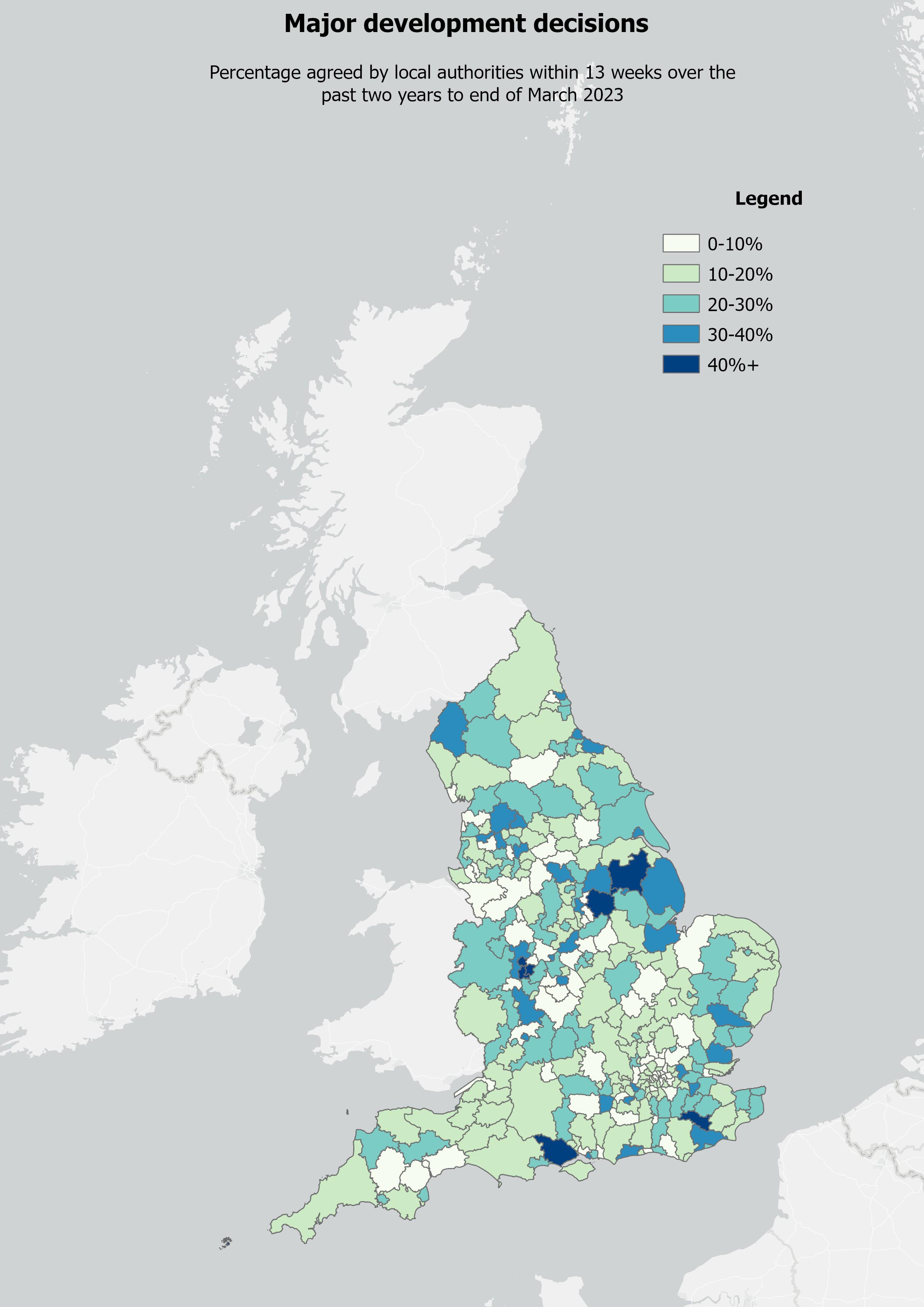Half of UK housebuilders allow over a year for detailed planning approval
Housebuilders are facing long delays to secure reserved matters, the second stage after an outline permission has been approved.
3 minutes to read
In our latest residential development survey of volume and SME housebuilders, half of respondents said they allow over a year to secure reserved matters approval on an allocated site.
Planning delays have long been held up as the biggest bugbear for Britain's housebuilding industry, and this quarter is no different, with 80% of housebuilders saying they were the most challenging aspect of their business in Q2.
Over a quarter of housebuilders allow between a year to 18 months for obtaining approval of reserved matters on an allocated site, the next stage after an outline permission has been granted. Typically, this approval process should take eight weeks for minor developments or three months for large developments (10 units plus). Our survey shows that another 18% of respondents would allow up to two years, with 5% building in over two years.
New development projects have stalled amid uncertainty over the future direction of planning and the subdued state of the property market.
In short, the vast majority of local councils are failing to process most applications for major developments within the statutory 13-week time frame (see map below).
Only 13% of our respondents said they would allow up to six months for securing reserved matters, double the statutory time-frame.
This points to a lack of resource as it’s not how the system was designed to work, according to the Planning Advisory Service, and the picture was very different a decade ago when the speed of decisions was much faster.
I spoke to our planning team at Knight Frank about the delays. Our head of planning at Knight Frank Stuart Baillie noted that the survey results raise questions about the value of outline consents if they are contingent on reserved matters which the survey suggests can take as long as a full application to get approval. Once the principle of development and illustrative designed is established in an outline consent, the approval of the detailed design should be a much quicker process.
This is especially the case as the Knight Frank planning team is finding that more outline applications are requiring additional detail around design codes, guidance and other requirements.
The Planning Advisory Service, part of the Local Government Association, says on its website: "For the overall credibility of the planning system, extensions of time should really be the exception and efforts [should be] made to meet the statutory timescale wherever possible.”
But the current government only steps in when authorities decide fewer than 60% of major applications within 13 weeks or an agreed time frame. These time extensions are becoming increasingly commonplace, and they are masking the extent of the delays.
Official data shows that there are extensive delays across all major development – the government tracks how many decisions go over the statutory 13 weeks for everything combined from new homes to offices, warehouses, and retail.

◼ The latest official data indicates that just 19% of applications were processed within 13 weeks over the past year, down from 57% ten years ago.
◼ The map shows that only 12 out 322 authorities managed to process more than 40% of applications within 13 weeks over the past two years. And only two managed to process 70% or more in this time frame.
◼ The biggest proportion (just under 40%) could only manage to process between 10-20% of applications within the statutory 13 weeks.